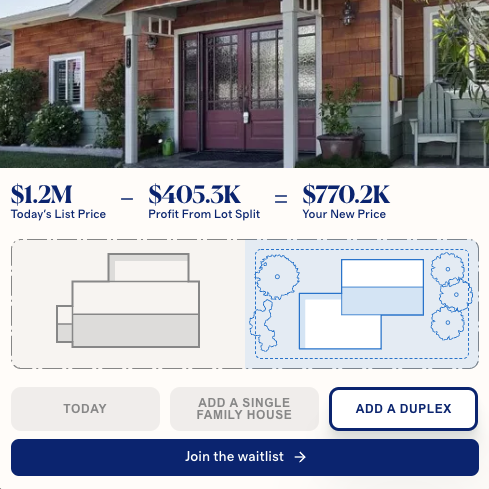Physical Address
304 North Cardinal St.
Dorchester Center, MA 02124
Physical Address
304 North Cardinal St.
Dorchester Center, MA 02124

Discussions about land use reform focus on policy – as they should. Overcoming NIMBYism will require deep legal, political, and regulatory reform. That said, entrepreneurs may be helping to short circuit the perverse incentives that give rise to NIMBYism in the first place. New companies may be encouraging homeowners to embrace density and helping to break the tie between homeownership and anti-deveolpment attitudes in the process.
Belong is an early stage startup making it easier for homeowners to rent out their single family home. The main use case is that of a homeowner renting (instead of selling) after a move.
A lot goes into becoming a landlord and Belong’s elevator pitch is that they simplify the process. The company’s customers access insurance, connect to contractors for repair and renovation, get help with listing, and find anything else they need all in one place.
To the extent they’re successful, they’ll be creating a class of small scale landlords with every reason to develop missing middle housing. Transforming the family home from a speculative asset to one producing a monthly stream of revenue makes ADUs and duplexes more attractive. More units mean more tenants and therefore better monthly returns. And once an owner is no longer an owner-occupier, “neighborhood character” concerns become less salient as well.
That said, this is admittedly speculative. Whether single property landlords will be as YIMBY as I suspect is an empirical question for the future. More immediate, though, are the incentives another new startup is creating for homeowners across California.
Homestead is a property developer that’s using legislation like California’s SB9 and SB10 to build housing. They work with homeowners interested in the upside of doing a lot split and adding housing like a duplex or an ADU. They also market to prospective homebuyers. California home prices being that they are (obscene), doing a lot split to offset the initial purchase cost is attractive.
While Homestead is a developer, a lot of what they do is reduce cognitive overhead. California permitting processes are byzantine at best and while reforms like SB9 and SB10 have made them better, it’s still like playing snakes and ladders. Making it easier for people to take advantage of hard fought legislative victories is great. Showing a new generation of homeowners that density can be good may be even better.
No startup is going to unilaterally fix the housing crisis. That was always going to take major legal, regulatory, and political reform. Still, companies like Homestead and Belong could help shift homeowner attitudes in favor of density. Giving homeowners the personal financial incentive to develop missing middle housing in low density residential neighborhoods would be great for increasing supply. It would also help normalize densification, clearing the way for further development and greater reforms.
Convincing people to support housing on policy grounds is good and necessary. But not everyone spends their Friday night reading Vox explainers. For normal folks who neither know nor care what housing twitter is, creating opportunities to benefit from a pro-supply housing regime will matter. And although we all understand supply elastic housing markets will make society better off on the whole, anything that makes that upside more immediate and tangible for folks just living their lives is only going to help.